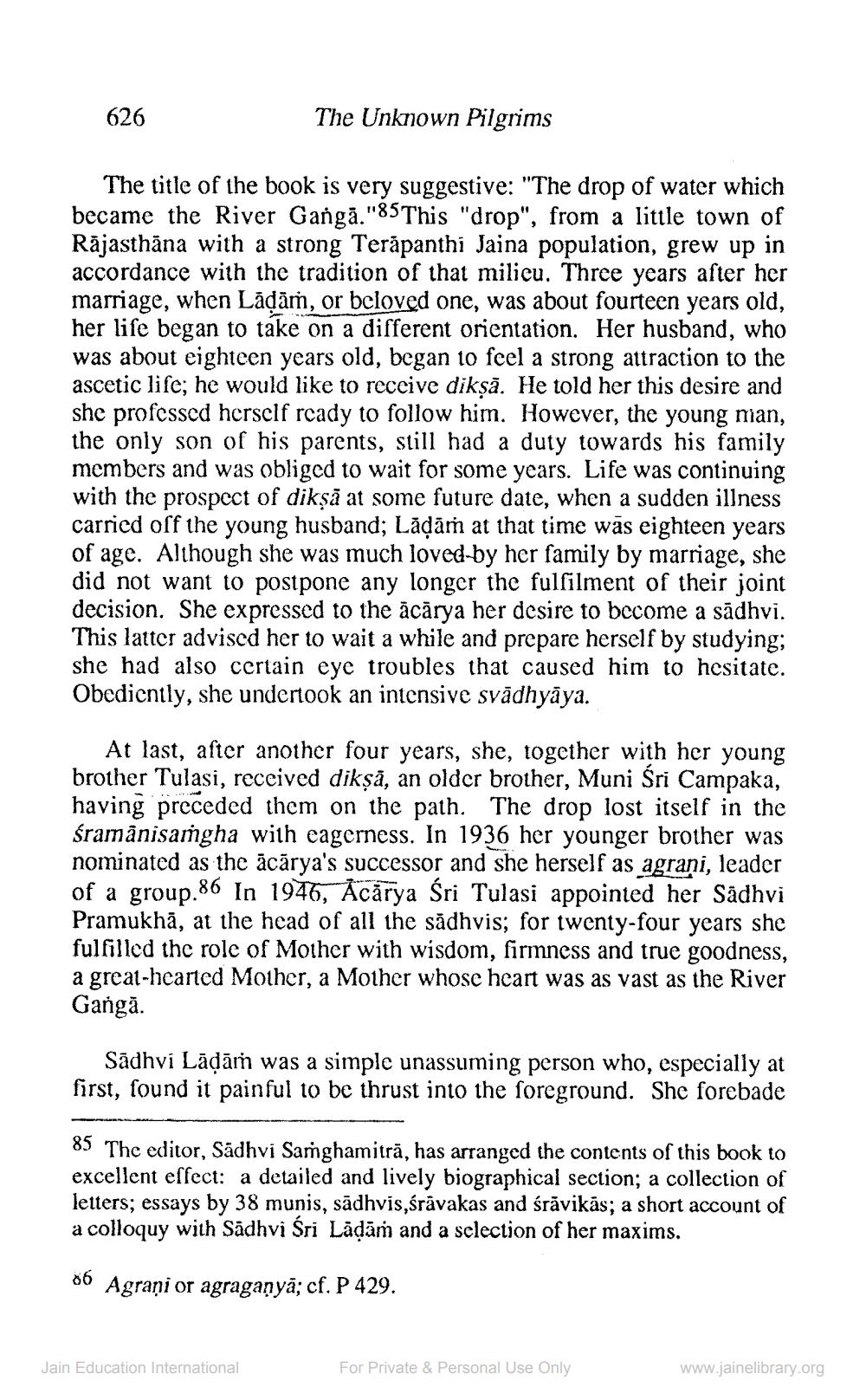________________
626
The Unknown Pilgrims
The title of the book is very suggestive: "The drop of water which became the River Gangā."83 This "drop", from a little town of Rājasthāna with a strong Terapanthi Jaina population, grew up in accordance with the tradition of that milieu. Three years after her marriage, when Lādāṁ, or beloved one, was about fourteen years old, her life began to take on a different orientation. Her husband, who was about eighteen years old, began to feel a strong attraction to the ascetic life; he would like to receive dikṣā. He told her this desire and she professed herself ready to follow him. However, the young man, the only son of his parents, still had a duty towards his family members and was obliged to wait for some years. Life was continuing with the prospect of dikşā at some future date, when a sudden illness carried off the young husband; Lādām at that time was eighteen years of age. Although she was much loved-by her family by marriage, she did not want to postpone any longer the fulfilment of their joint decision. She expressed to the ācārya her desire to become a sādhvi. This latter advised her to wait a while and prepare herself by studying; she had also certain eye troubles that caused him to hesitate. Obediently, she undertook an intensive svādhyāya.
At last, after another four years, she, together with her young brother Tulasi, received dikṣā, an older brother, Muni Sri Campaka, having preceded them on the path. The drop lost itself in the śramānisamgha with eagerness. In 1936 her younger brother was nominated as the ācārya's successor and she herself as agrani, leader of a group.86 In 1946, Ācārya Śri Tulasi appointed her Sâdhvi Pramukhā, at the head of all the sădhvis; for twenty-four years she fulfilled the role of Mother with wisdom, firmness and true goodness, a great-hearted Mother, a Mother whose heart was as vast as the River Gangā.
Sādhvi Lādār was a simple unassuming person who, especially at first, found it painful to be thrust into the foreground. She forebade
85 The editor, Sadhvi Samghamitrā, has arranged the contents of this book to excellent effect: a detailed and lively biographical section; a collection of letters; essays by 38 munis, sādhvis,śrävakas and śrāvikās; a short account of a colloquy with Sadhvi Sri Lādām and a selection of her maxims.
86 Agrani or agraganyā; cf. P 429.
Jain Education International
For Private & Personal Use Only
www.jainelibrary.org




